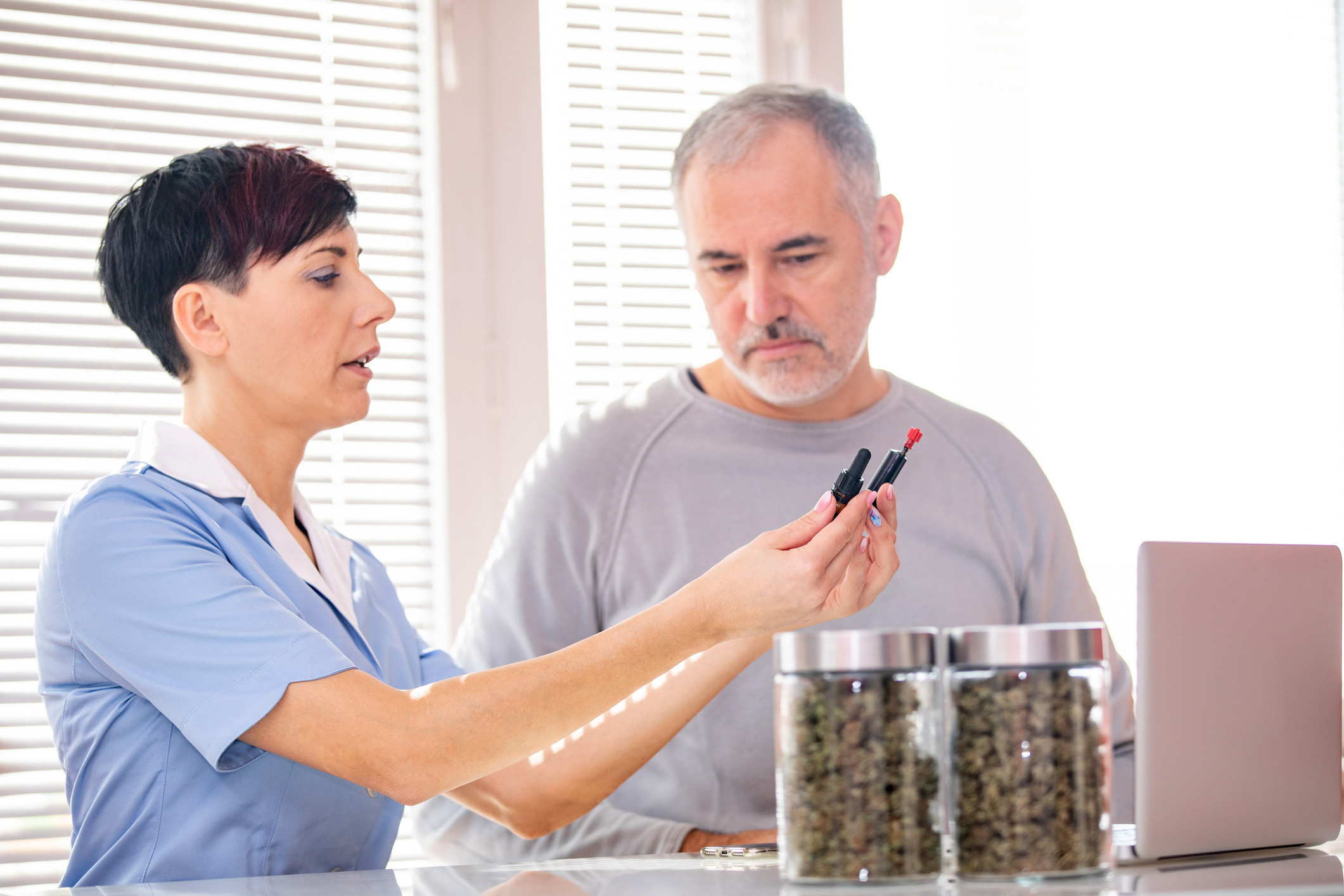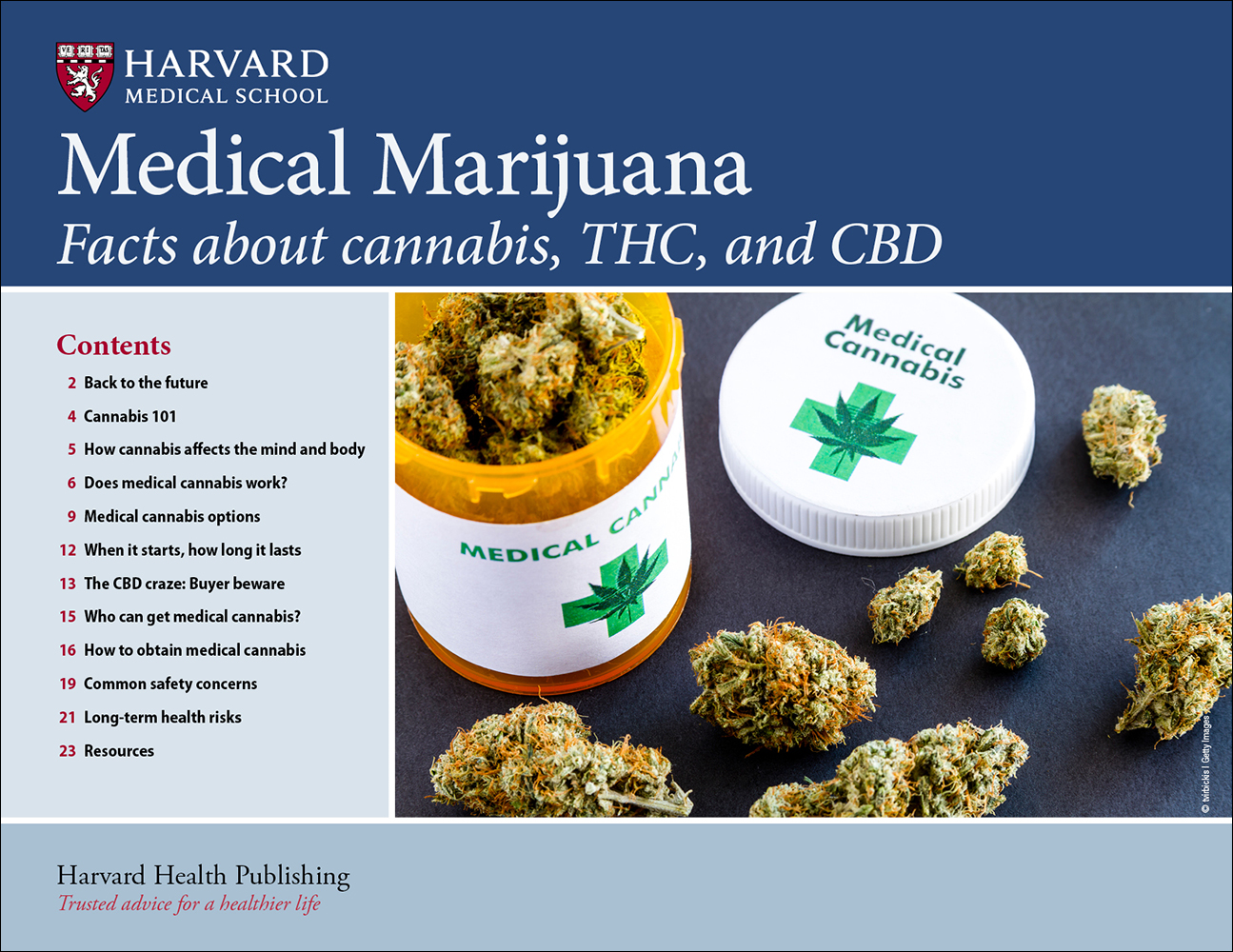Older adults and medical marijuana: Reduced stigma and increased use

As a primary care doctor who has incorporated medical cannabis into his practice, it is notable how many silver-haired patients are coming in to discuss the pros and cons of a trial of medical cannabis. These patients range from people in their 60s with kidney failure, who can no longer take certain pain medications but still need to manage chronic pain, to patients in their 90s who are looking for a good night's sleep and are leery of the side effects of traditional sleep medications. Some of them — typically "children of the 60s" — are quite comfortable with the idea of using medical marijuana; others bring it up quietly, as if they are asking permission to break the law.
According to a recent study in the Journal of the American Medical Association, cannabis use among older adults (defined as 65 and older) in the US has been steadily increasing. In this study, the prevalence of past-year use increased from 2.4% to 4.2% from 2015 to 2018. This study is consistent with other research, as well as with reports from physicians who recommend cannabis in their daily practices.
What might be behind this trend?
A confluence of factors seems to be responsible, including the decrease in stigma associated with cannabis use and the increased interest in the use of medical marijuana by older patients. Stigma is a complicated issue, but most would agree that the stigma associated with cannabis use is lessening, especially for medical cannabis. In a recent poll, 94% of Americans voiced support for legal access to medical marijuana, and most states have approved some form of legal access.
One marker for the decrease in stigma is the recent statement by the 38-million-member AARP, in which they declared their support for the medical use of marijuana for older adults in states that have legalized it, in close consultation with their medical providers, where they can discuss the most up-to-date clinical evidence, weighing the balance of benefits and harms.
What conditions are older adults using cannabis for?
Studies show that older adults commonly use medical cannabis for the same conditions younger patients do: pain, insomnia, neuropathy, and anxiety.
What are the risks for older people using medical cannabis?
This is new territory, as either there haven't been large numbers of older adults who report using medical cannabis, or if they have been using it they have kept it quiet, due to its illegality and due to the stigma. Medical cannabis is typically well tolerated among older adults; however, as with all medications, there is no such thing as a free lunch, meaning that there are always side effects and downsides to consider.
Cardiac health and cannabis use
Cannabis is known to increase heart rate and can increase blood pressure, though there doesn't seem to be much if any quality evidence directly linking cannabis use with coronary events, according to a recent review by the Journal of the American College of Cardiology. Still, the authors of this review do recommend screening people with coronary disease for cannabis use. The scenario that I would be most concerned about is an older patient, with underlying coronary disease, taking a very high dosage of cannabis (perhaps by mistake via edibles) and then having an anxiety attack, which could trigger a coronary syndrome or an arrhythmia.
Medication interactions
Older people tend to have comorbid health conditions and may be taking multiple medications. Cannabis has about 600 chemicals in it, and in theory the two main active ingredients in cannabis, THC and CBD, could either increase or decrease the blood levels of other drugs you are taking by affecting the enzymes in your liver that help metabolize your medications. CBD, in particular, is at risk for increasing the other drugs in your system by "competitively inhibiting" (or, in plain English, using at the same time) the molecules that you need to break down and clear these medications from your body.
People should be particularly cautious using cannabis with anti-seizure medications and with blood thinners, as these medications tend to have serious side effects and not as much room for error, and it is important that you always communicate with your medical providers about your cannabis use. Disclosing marijuana use is particularly important if you plan to have surgery, as the drugs used for anesthesia and post-surgical pain management may need to be adjusted.
Changes in thinking, both pro and con
The psychoactivity, or the high that cannabis causes, is another potential concern for older adults, especially those at risk for confusion and dementia. These days, with the ability to buy cannabis in medical dispensaries, there is more control over the types or strains of cannabis that one can buy and consume, and it is easier to avoid the high by controlling the dose and by keeping the THC content low.
Strains that are low in THC (the chemical that causes the high) and higher in CBD, which is non-intoxicating, may be preferable to avoid the psychoactive experience of marijuana. Still, if an older person has experienced delirium, or any psychiatric conditions, they and their doctors should proceed with caution.
Interestingly, there is some research that cognitive functioning can actually improve when patients use medical cannabis, due to (among other things) improved sleep and pain control. It seems plausible that older patients might be using lower doses of pain and sleep medications, which can affect thinking, and they are combatting the negative effects of chronic pain and insomnia, which also have an effect on cognitive functioning. However, as with most things cannabis-related, this too needs further study to confirm and clarify.
What's the bottom line?
Cannabis use among the elderly is growing, as there is more public acceptance and reduced stigma. Medical cannabis is increasingly viewed as an effective option for managing insomnia and chronic pain. It's key to have an informed discussion with your doctor to weigh the safety risks, especially if you have cardiac issues, are taking multiple medications, or have cognitive changes due to aging.
Educate yourself (and your doctor) as much as possible about cannabis before starting to use it. Most of the adverse effects associated with cannabis usage are dose-related, so it is important to know the strength of the marijuana you are taking and to "start low and go slow": start with the lowest effective dose and take your time working your way up to a dose that alleviates your symptoms with a minimum of side effects.
About the Author

Peter Grinspoon, MD, Contributor; Editorial Advisory Board Member, Harvard Health Publishing
Disclaimer:
As a service to our readers, Harvard Health Publishing provides access to our library of archived content. Please note the date of last review or update on all articles.
No content on this site, regardless of date, should ever be used as a substitute for direct medical advice from your doctor or other qualified clinician.
















